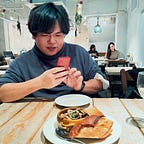‘Mother’ Is Not All She Is
When we queers are loved and accepted by our families, we often see it as a beautiful thing, maybe even as one of the most desirable moments that can ever happen in a queer person’s life. We feel nothing but happy for the queer kid, when we hear stories like the book by Cheryl Kilodavis.
And, yes, indeed, I’m happy for queers whose parents are understanding. I myself have a understanding mother and I am very grateful to her. She is an organizer of a monthly drag pub event in town——what more could I expect?
But I hate the stories of “understanding parents” — — especially mothers. I hate the typical narrative of them being “shocked at first” and then gradually becoming tolerant and understanding of their kids.
I mean, yes, they exist — — but why is the mother in these stories always “shocked” and “struggling” and, eventually, “over it” and “accepting”? I mean, living in today’s U.S. or any society that is westernized to some extent, mothers are more likely than ever to know someone who is queer themselves, more likely than ever to have been to gay clubs, queer marches, or at least been exposed to portrayals of queers on TV and in film, not just flamboyant figures who are the object of ridicule, but also those well-received icons like Ellen DeGeneres.
Besides, what about working-class mothers? What about ethnic minority mothers? What about disabled mothers? You know, those mothers have experienced marginalization themselves first-hand. They know what it’s like to be marginalized. Even white, able-bodied, heterosexial, cisgender, middle- or upper-class mothers have experienced (to varying degrees) some form of marginalization because of their gender (I know fathers have, too, depending on their class, ethnicity, etc. but let me focus on mothers here).
My mother used to be geisha and a hostess at hostess clubs. My grandmother who is accepting of my queerness——quite incredible for a 85-year-old—used to be geisha/a sex worker, too. And they had known their queer neighbors long before I came out — — even long before I was born.
I’m not saying me coming out to them had no impact on their life, but it was totally additional, yet another queer element of their life. They lived in poverty, experienced/witnessed sexual exploitation and violence, had friends/neighbors who were queer, spent some time with them and had good and bad memories of them, have had the opportunities to learn about the lives of queers, and have had their own politics to pursue (anti-workplace sexism, anti-domestic violence, etc.).
It doesn’t seem so unnatural that they weren’t shocked to know I was queer.
Neither my mother nor grandma fits into the category of the shocked-then-accepting mother. Was I lucky? Yes. But were they lucky? Hmm, I’m not sure about that, because they have become who they are today due to the marginalization they had to face as young women.
What really bugs me about the shocked-then-accepting mother figure is that it totally overlooks the possibility that ‘mothers’ are all sorts of various other things, be it a sex worker, a politician, a low-wage factory worker, a single woman, a domestic violence survivor, a wheel chair user, a survivor of rape, an ex-girlfriend of a queer person, a daughter of a gay father, a sex education specialist, a feminist, a bisexual woman, a lesbian, a trans woman, a trans man, etc.
Mothers are mothers, some maybe primarily so, but that’s not all they are. They have their own experience with queerness, whether they like it or not.
The figure of the shocked-then-accepting mother is based on the sexist idea that reduces women with a child or children to the narrow definition of ‘mother’, who lacks autonomy, agency, and life-outside-motherness.
Which is very annoying.
